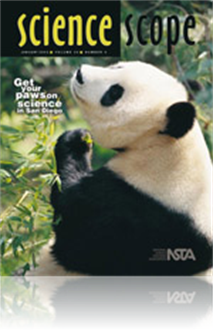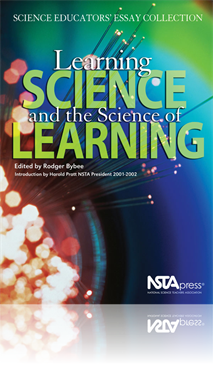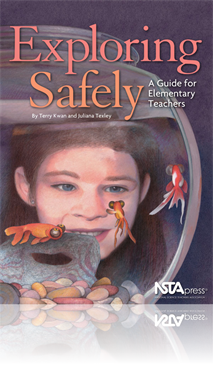All Resources
Journal Article
Science Sampler: The atomic dating game
This chemistry activity helps students visualize and understand how and why atoms combine. This concept is critical to a student's understanding of ch...
Book Chapter
How Students Learn and How Teachers Teach
In this chapter, the author explores the relationship between learning theories and teaching practices. It compares three features of scientific and e...
Book Chapter
Assessment involves an ongoing investigation of student learning that influences teachers’ planning and instruction. Multiple assessment strategies ...
Book Chapter
Curriculum Reform, Professional Development, and Powerful Learning
The authors consider the important relationship between standards-based curriculum implementation and professional development. They begin by looking ...
Book Chapter
Professional Development and How Teachers Learn: Developing Expert Science Teachers
Groundbreaking research on learning and cognition has produced many new insights into how people learn. These findings conclusively dispel the idea th...
Book Chapter
Applying the Science of Learning to the Education of Prospective Science Teachers
Cognitive scientists have studied the highly organized and efficiently utilized characteristics of experts’ knowledge in thinking and problem solvin...
Book Chapter
Scientific Inquiry, Student Learning, and the Science Curriculum
What we know about student learning establishes links between scientific inquiry and the science curriculum. In this chapter, the author discusses sci...
Book Chapter
Supporting the Science-Literacy Connection
Language arts and science are perceived as competing for classroom time and attention, and science is often neglected. However, effective literacy ins...
Book Chapter
Reaching the Zone of Optimal Learning: The Alignment of Curriculum, Instruction, and Assessment
The authors discuss curriculum, instruction, and assessment and how their integration enables students to achieve a strong knowledge base in science. ...
Book Chapter
Alignment of Instruction with Knowledge of Student Learning
A series of classroom vignettes and student conversations provides a glimpse into how our theoretical understanding of human learning translates into ...
Book Chapter
Learner-centered science teaching begins with the stories of learners. Knowing our students, and thereby crafting lessons that account for their inter...
Book Chapter
Using the Laboratory to Enhance Student Learning
Typical hands-on, cookbook laboratory experiences do an extremely poor job of making apparent and playing off students’ prior ideas, engendering dee...
Book Chapter
Using Assessment to Help Students Learn
Assessment in the classroom is more than tests and quizzes on Friday. It is an everyday feature of classroom life. Students and teachers use assessmen...
Book Chapter
Investigative science provides the opportunity for students to learn new skills. But it also means more work and responsibility for everyone. An act...
Book Chapter
Sometimes you wonder how you’re going to get everything done. Each time you check off an item, two more appear. Those are the times to take stock of...




